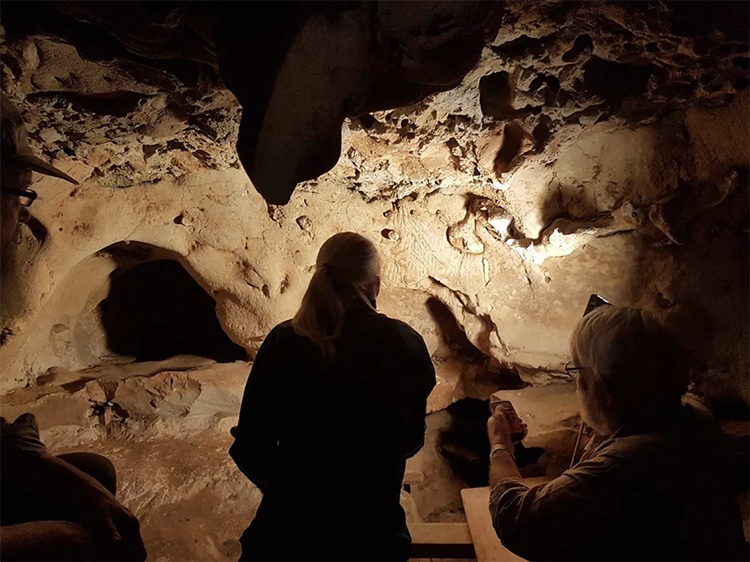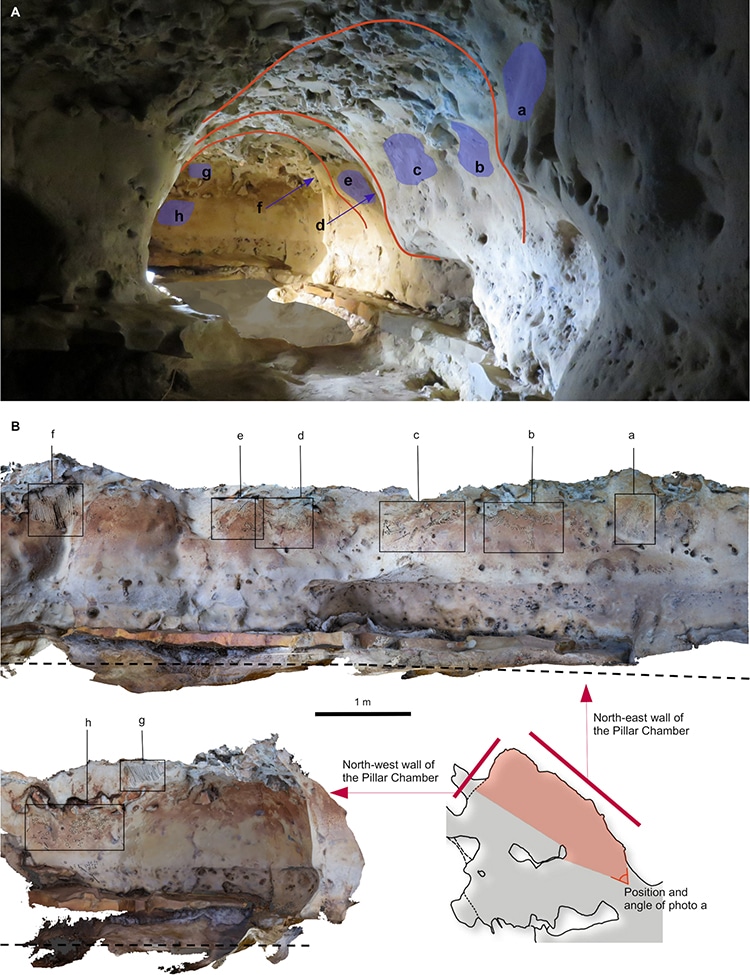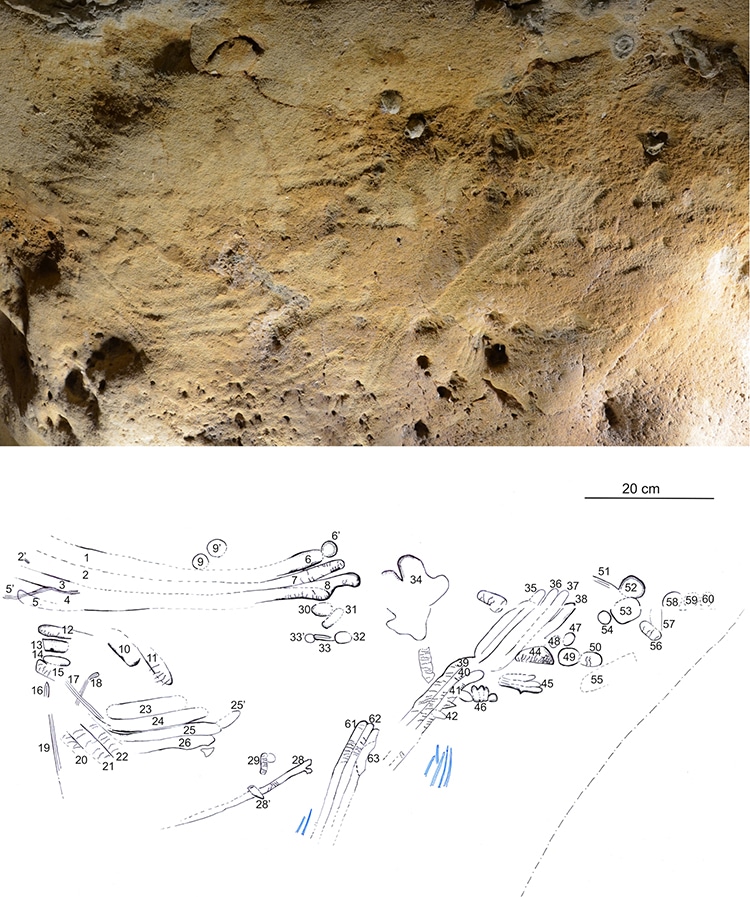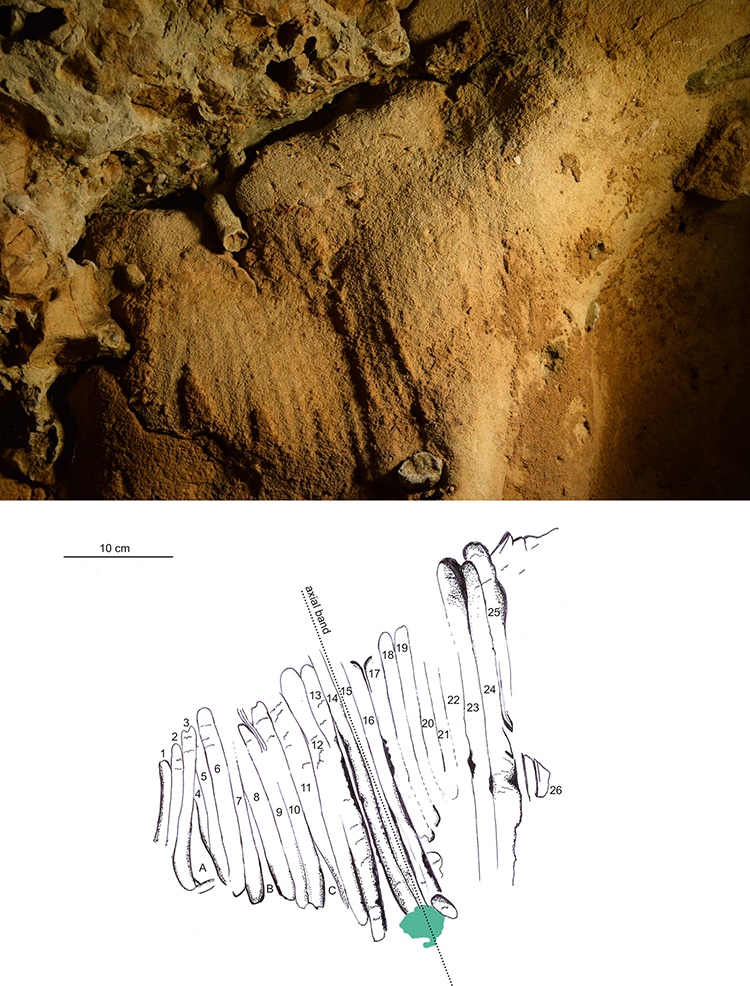Oldest Neanderthal Engravings Have Been Preserved in a Cave for 57,000 Years

Scientists examining the cave's interior. (Photo: Kristina Thomsen, CC BY 4.0)
Cave art is a fascinating window into the lives of past humans, including our ancient relatives, like the Neanderthals. About 40,000 to 400,000 years ago, this subspecies of archaic humans roamed Europe and Asia. They died out as modern homo sapiens rose to prominence; but before that, the two groups came into contact and even interbred. In fact, most people today have some small percentage of Neanderthal DNA. Scientists are continuing to learn more about them, and it turns out that these early Europeans were purposefully engraving cave walls in France well before homo sapiens arrived in the region. As published in a recent study, a cave at La Roche-Cotard in the Loire Valley demonstrates fascinating Paleolithic art that was sealed by rock for over 57,000 years.
The cave in question was unknown until 1846. At that time, excavations in preparation for railroad expansion uncovered the mouth of the cave. Present researchers, who began studying it in 2016, determined that the cave became closed off to the world at least 57,000 years ago. During this period, the Loire often flooded, bringing sediment into the cave. This sediment eventually blocked the entrance, and it was minerals, such as the quartz in the rock, that the team tested using optically stimulated luminescence dating.
Inside the cave are impressions and lines drawn into the rock. The team carefully mapped these for comparison to Neanderthal engravings from other sites. They also identified other marks made by the likes of cave bears and 19th-century humans. All of the signs indicated that the engravings were done slowly and deliberately by hand. Like other caves in the area, the interior was lined in soft chalk, known as tuffeau, under a clay film. This could be engraved with hands or tools. “When the tip of a finger comes into contact with this film, a trace is left in the shape of an impact; when the tip of the finger moves, an elongated digital trace is left,” says lead author Jean-Claude Marquet, University of Tours.
The ancient engravers likely used tools as well as their hands. Scattered flake tools, known as Mousterian technology (a typical tool style of Neanderthals), were discovered in the cave. In a nearby cavern, the research team tested making their own engravings using similar tools. While a direct link with the engravings is not yet found, there is a strong connection.
But how do we know Neanderthals were the ones to wield these tools and press their marks? Well, homo sapiens had yet to arrive in that part of France 57,000 years ago, when the cave was sealed with the engravings inside. This makes these marks the earliest known Neanderthal engravings, surpassing those discovered in Gibraltar which date to 39,000 years ago.
The earliest known Neanderthal engravings were sealed inside a French cave known as La Roche-Cotard for 57,000 years.

A view of the cave showing the location of engravings. (Photo: Marquet et al.)
They were made before homo sapiens arrived in that part of France.

Some examples of carvings inside the cave. (Photo: Marquet et al.)
The cave was sealed off by sediment 57,000 years ago and this preserved the engravings for scientists to study.

Some examples of carvings inside the cave. (Photo: Marquet et al.)
h/t: [Smithsonian Magazine]
Related Articles:
6 Incredible Facts About the Prehistoric Altamira Cave Paintings
Ancient Maya City Discovered Under Jungle Forests in Mexico After 1,000 Years
Man Solves 20,000-Year-Old Cave Drawings Mystery That’s Been Stumping Archeologists
3D Technology Reveals North America’s Largest Repository of Ancient Cave Art
READ: Oldest Neanderthal Engravings Have Been Preserved in a Cave for 57,000 Years

0 Commentaires